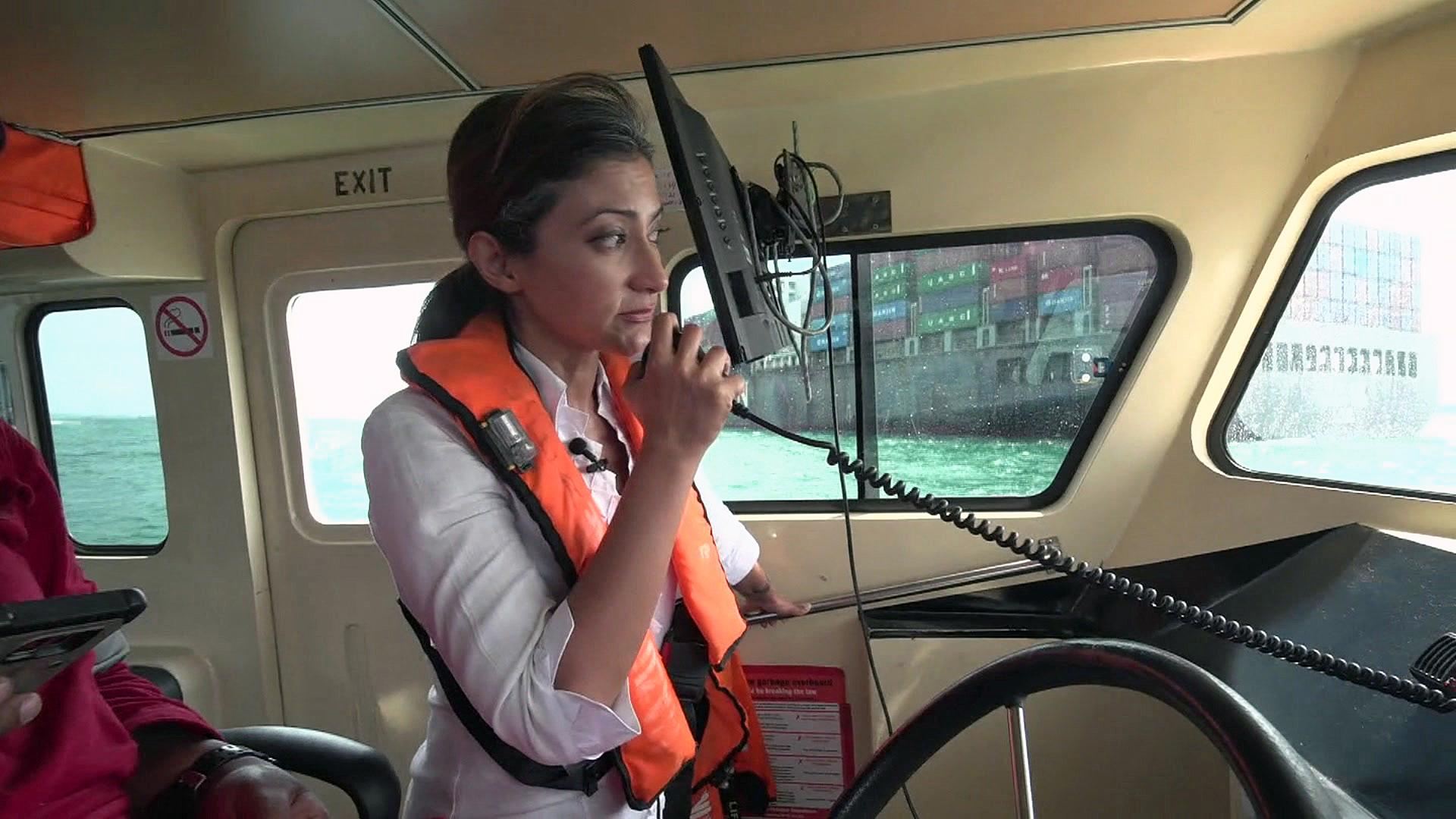How Hanjin's collapse left a British artist stranded at sea
- Published
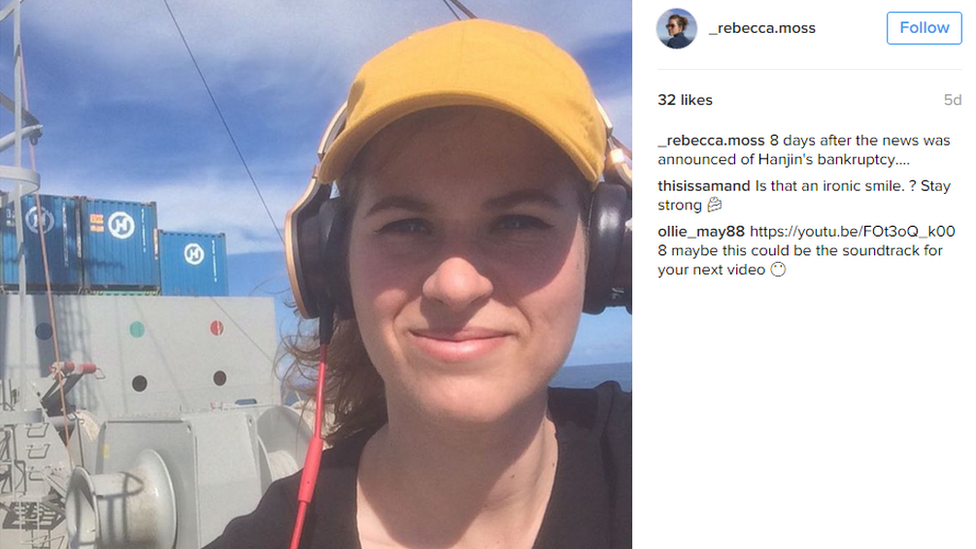
The 25-year-old British artist is an MA student at the Royal College of Art
When British artist Rebecca Moss was told over a ship's breakfast one morning to sit down and brace herself for bad news, she wasn't expecting to hear she was now stranded at sea.
She was told by the captain of the Hanjin Geneva that its South Korean owners had gone bankrupt, so the ship was barred from international ports.
The 25-year-old is taking part in an artist in residency programme, which was meant to be "23 Days at Sea".
She and the 25 sailors on board were due to return to dock on 15 September, but for now there's no word on when they will get to go home.
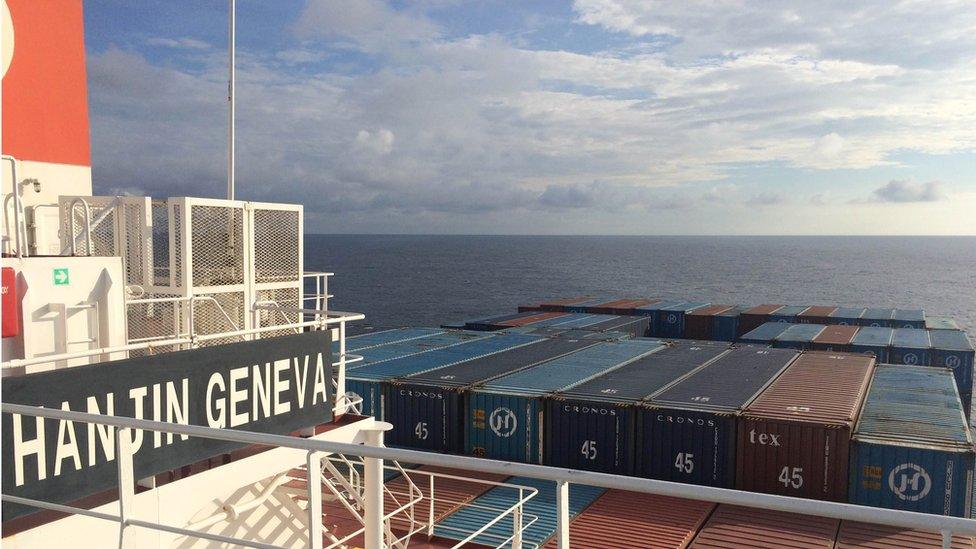
The view onboard the Hanjin Geneva, on which Rebecca Moss has been stranded since 1 Sep
The Geneva is one of dozens of Hanjin vessels stranded around the world since the firm, South Korea's largest shipping company, filed for bankruptcy protection.
Ports, fearing they will not get paid, are refusing to let Hanjin boats dock or unload.
Read more: What happens when a shipping line goes bust?
So far, Hanjin ships in the US have been granted protection, which will allow American-bound vessels to unload their cargo.
But for the Geneva, it might be days or weeks of floating in the middle of the Pacific Ocean, near the coast of Japan, as it waits for a solution.
'The indefinite duration of waiting'
Rebecca figured it would just be a hiccup when she first heard the news.
She thought their ship would be redirected to a different port, or that a boat would be sent to fetch the passengers.
That was 13 days ago.
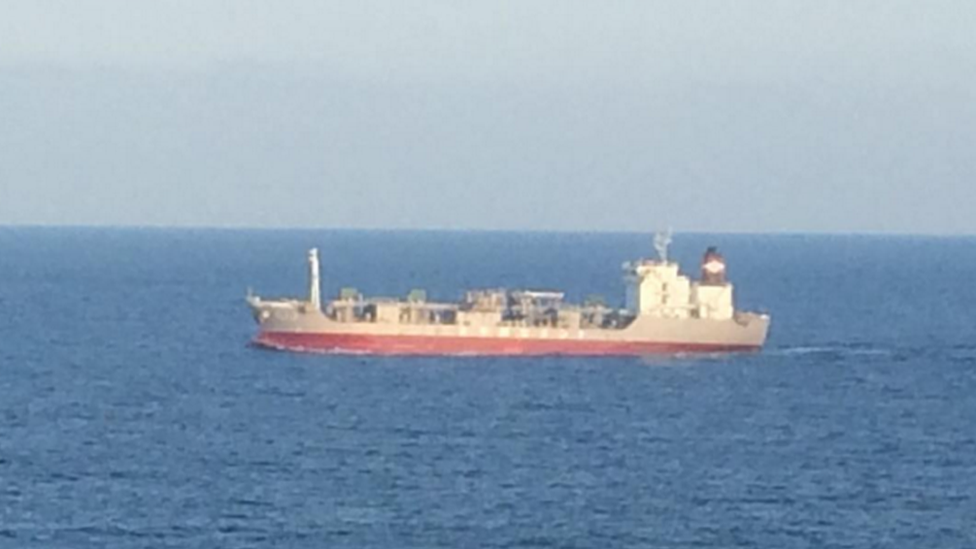
Hanjin is in $5.4bn (£4.1bn) worth of debt
"I have found the indefinite duration the most difficult aspect to deal with as an artist," she said. "Formulating a strategy to make work becomes impossible when things could change at any minute".
Her daily life on board she says, is structured around meals. There is enough food and drink on board to last them a few weeks.
The 23 days she was meant to spend at sea as part of the residency programme, run by Access Gallery in Vancouver, are now up.
The programme, which started last year, sends artists across the Pacific Ocean each year between Vancouver and Shanghai and is meant to spark their creativity. Its inaugural trip saw more than 800 responses for four vacancies.
Rebecca was one of four artists selected this year.
"I was, and am, excited about the trip as it chimed with a lot of my interests as an artist," she said.
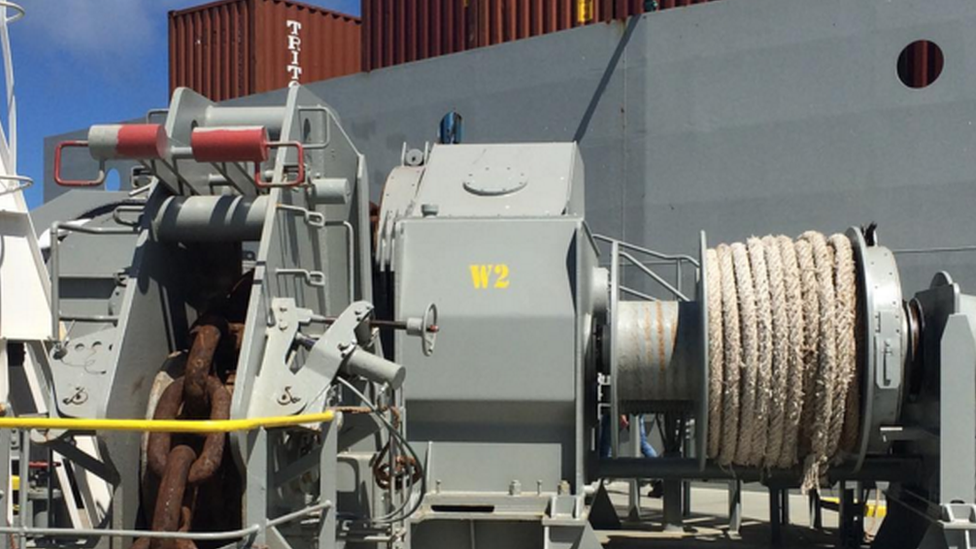
Rebecca has taken to Instagram to document each facet of her life onboard the Hanjin
She is currently an MA student at the Royal College of Art in London, specialising in absurdist film-making, external.
Her proposal for the trip was to explore how comedy arises in the tension between a mechanical system imposed into nature.
"The situation is completely ironic," she said. "It is bizarre how much it suits my interests."
Hope on the horizon?
The chairman of Hanjin Group has given a 40bn won ($36m; £27m) bailout to Hanjin Shipping, but regulators warned that securing funds could still take "considerable time".
Yet how much time exactly remains unknown.
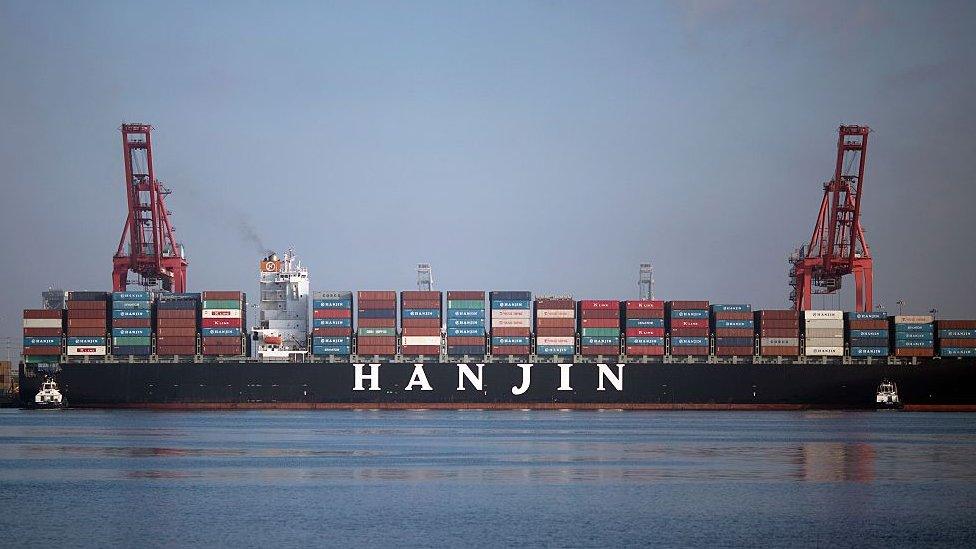
It might be days, or weeks of floating in the middle of the Pacific Ocean as the Hanjin Geneva (not pictured) waits for a solution
"I want to be informed of a definite plan for how the passengers are going to be able to disembark. I can work with a plan," Rebecca said.
The first thing she wants to do when she gets on land, she says, is meet up with other artists "in whatever place that ends up being".
But as of now, no-one knows where that place is, or when the Hanjin Geneva will get to shore.
"Every day I hope will bring news that we will get into a port," says Rebecca. "(But) nothing has changed."
- Published1 September 2016
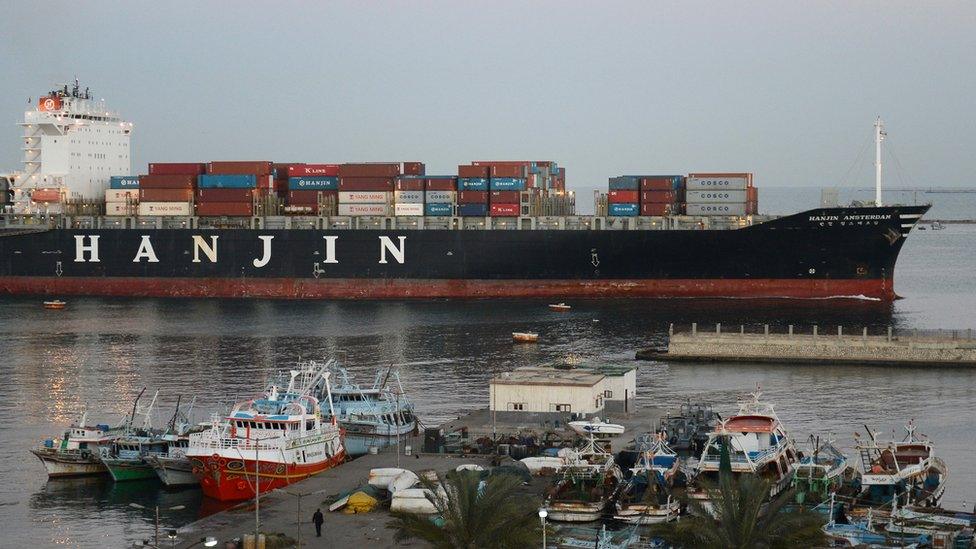
- Published9 September 2016
